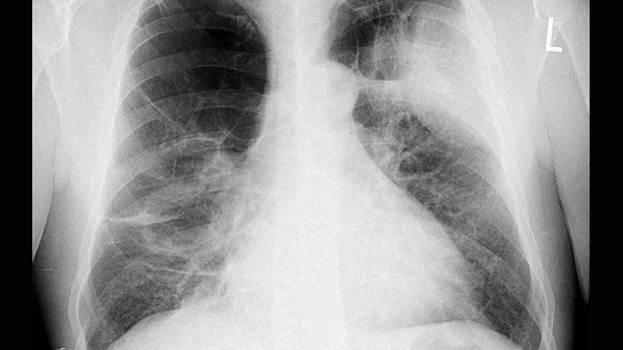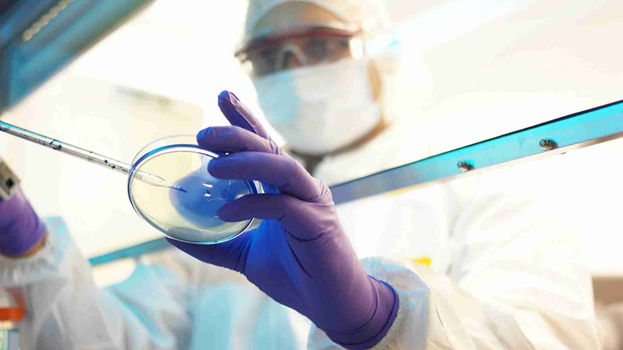
(Photo: CGTN)
Chinese scientists have found that tumor growth could be inhibited via the accumulation of tumor-suppressing gene P53 by “kicking out” a key gene in cells, according to a study published in the international journal Theranostics.
“The key gene, named HUWE1, is blamed for lung cancer, without it, lung cancer won’t exist,” said Zhao Xudong, a researcher at Kunming Institute of Zoology under the Chinese Academy of Sciences.
The first experiment using gene technology to delete HUWE1 was carried out on mice, which proved that lung cancer will be diagnosed only if the HUWE1 gene is spotted.
“Then we found that when people are detected with the lung cancer, inhibiting HUWE1 in the human body is a promising treatment,” he explained.

(Photo: CGTN)
Starving tumor cells via the “star gene”
Tumor proteins P53 has been dubbed as “the guardian of the genome” due to its role in maintaining stability by preventing genome mutation.
While the enzyme E3 ubiquitin-protein ligase HUWE1 controlling DNA damage repair, cell growth and death is often expressed in lung tumor cells as an oncogene.
It is known that oncogene and tumor suppressor gene coexist in our body cells. The absence of the HUWE1 gene led to the accumulation of the tumor suppressor gene P53, which can stop blood vessels from growing in lung cancers, and in turn restrain the proliferation of the tumor cells considering that tumor cells cannot survive if the vessels refuse to transfer blood.
Lung cancer is one of the most frequent types of cancers and the leading cause of tumor-associated deaths worldwide.
For now, the research showed that the HUWE1 gene plays a key role in lung tumor growth, and may help improve the treatment of lung cancer. But the experiment proved successful only in the lab, it’s still not available for clinical trial.


